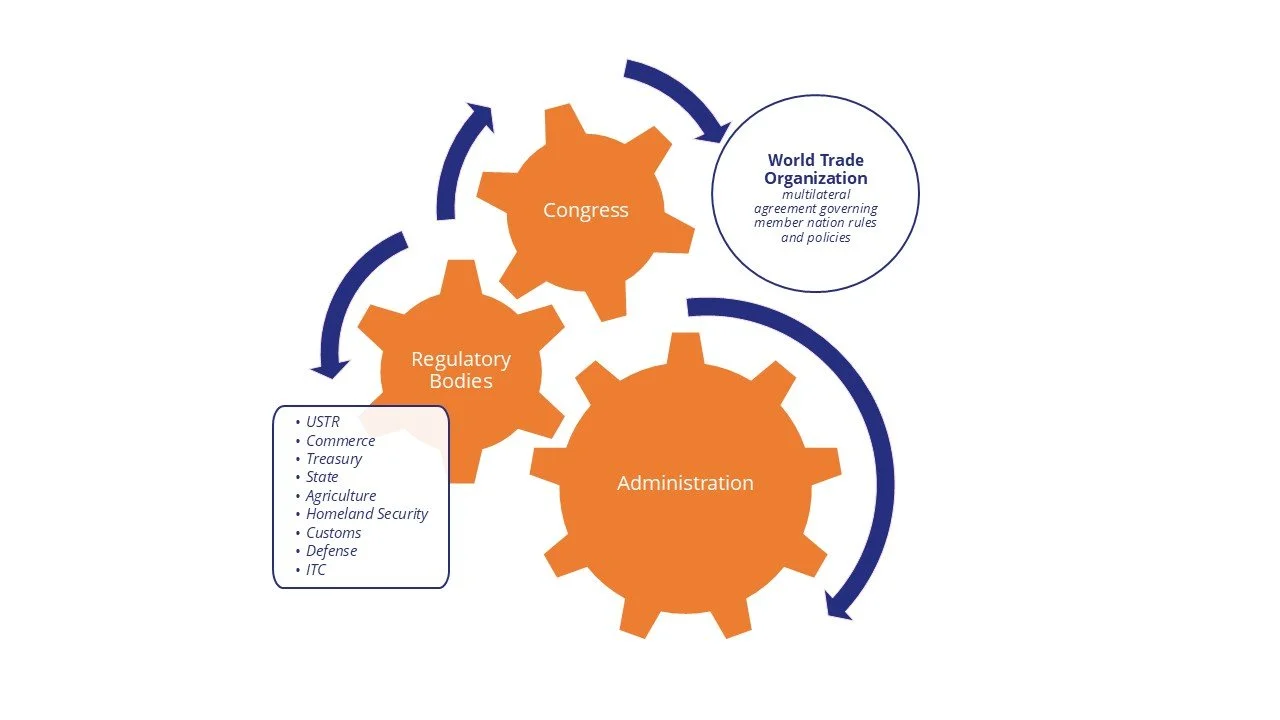
The Policy Makers
US international trade policy is regulated by a number of actors and bodies with, as noted above, powers that are enshrined in the US Constitution, delineated by the US Congress in federal statutes and implemented through federal agency regulations.

